Bones form the supporting structure of the body. They protect the internal organs and store calcium. Bones grow rapidly during childhood and adolescence, so it is essential to have healthy and strong bones at this time. You can also build strong bones during adulthood. So how to make bones strong?
Healthy Diet to Make Bones Strong
1. Add Calcium to Your Diet
Bones store calcium, therefore, a calcium rich diet is necessary for bone strength. For adult age 19 to 50 and males age 51-70, the daily recommended calcium amount is 1000 mg. Women need more calcium after the age of fifty and they should take 1200 mg of it daily. Calcium is found in abundance in dairy products. Almonds, salmon, broccoli and tofu are also rich in calcium. There are lots of calcium supplements available and if you cannot take enough of calcium containing foods, you can discuss with your doctor and have supplements.
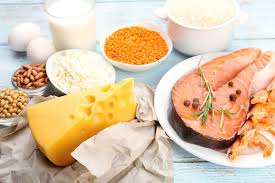
2. Consume More Vitamin D
For calcium absorption and metabolism, vitamin D is required. The daily recommended intake of vitamin D for all adults below 70 years old is 600 international units, and for people over 70 it is 800 IU. Fish, especially tuna and other oily fish, fortified milk and egg yolks are rich in vitamin D. Sunlight also plays an important role in converting vitamin D to its active form. If you think your vitamin D intake is low, you can discuss with your doctor and they can prescribe appropriate supplements.
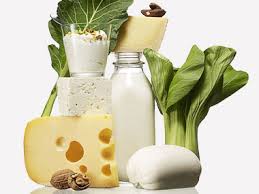
3. Eat Appropriate Amount of Proteins
The basic bone structure is made up of collagen which is a kind of protein. Protein is deposited and stored for added strength. Adequate protein intake is essential for bone growth and health because it plays an important role in assisting the calcium absorption. To prevent bone loss, you must include enough amount of protein in your diet. Meat, dairy products, fish, whole grains, eggs and pulses are good sources of protein.
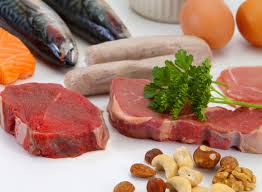
4. Get Enough Magnesium
How to make bones strong with healthy diet? You should include magnesium in your daily consumption. Magnesium is an essential and important nutrient. Around 60% of magnesium is stored in our bones. Magnesium requirement varies with age. The daily intake of magnesium of adults should be around 300 to 400 mg. For children and teens, the requirement is from 150 to 300 mg every day. Dietary sources of magnesium include green leafy vegetables, legumes, whole grains, avocado, bananas and nuts. It is important to have adequate amounts of calcium with magnesium because magnesium hampers calcium absorption. Both are essential for stronger bones.
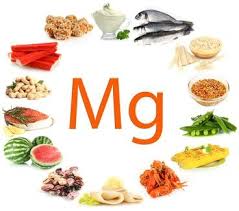
5. Include Vitamin B Rich Foods in Your Diet
Bone forming cells are known as osteoblasts. They play a key role in bone growth and are responsible for the repair and maintenance of bones once full growth is achieved. Vitamin B deficiency is associated with decreased number of osteoblasts, making bone regeneration slower. Vitamin B is found in abundance in meat, fish and dairy products. Vitamin B is not found in plant based foods, but vegetarians can consume vitamin B from fortified food and supplements.
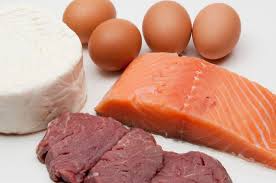
6. Eat Plenty of Vitamin C
The basic bone structure is made up of collagen. Vitamin C helps promote the synthesis of collagen, therefore can help keep the bones strong. Fruits and vegetables are excellent sources of vitamin C. The daily requirement will be easily obtained if you follow a balanced diet.

7. Reduce the Salt Intake
Excessive salt intake can be a reason for calcium loss from the body and can result in weak bones. Try to limit your salt intake by avoiding processed and pre-cooked foods as they contain a lot of hidden salt. Always read the label carefully before you consume them and select the low salt version.
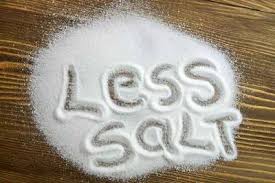
Note: Bone density is affected by many factors. There are a lot of medicines like steroids and anti-depressants which may lead to brittle bones. Whenever your doctor prescribes a new medicine, do not hesitate to discuss its effects on your bones with your doctor. They can add calcium supplements for you and give you guidance.
Healthy Lifestyle to Make Bones Strong
1. Do More Exercise

For better bones it is necessary to do regular exercise. Doing this can make your skeletal system strong. You can start it at any point of life to slow down the process of bone aging and weakening.
How to make bones strong by exercises? There are mainly two types of beneficial exercises:
Weight-Bearing Exercises
This kind of exercise is performed against gravity.
- High-impact weight-bearing exercises: These are great for building bones. However, people who are at increased risk of osteoporosis cannot do them due to risk of injury. This kind of exercise includes aerobics, running, hiking, dancing, jogging and climbing the stairs.
- Low-impact weight-bearing exercises: These are safe even for osteoporosis prone individuals. This kind of exercise includes low impact aerobics, the use of elliptical training machines, walking outdoors or using a treadmill.
Muscle-Strengthening Exercises
To strengthen the muscles, certain weights and techniques are used in such exercises. Certain postural practices like pilates, yoga and other core strengthening exercises are also beneficial.
Note: Be careful if you are just starting the weight bearing exercises. It is better to speak to an expert first so he or she can advise what type of exercise is good for you and how to minimize the risk of injury.
2. Quit Smoking

Bones absorb less calcium in people who smoke because smoking interferes with the absorption process of calcium. This leads to less quantity of calcium in bones and can result in weak bones.
Another way it reduces the calcium levels is that it decreases the levels of estrogens produced by the body. Estrogens enable the bones to hold calcium. Low estrogen levels put menopausal women and smokers at an increased risk of osteoporosis.
So if you are concerned about your bones and are wondering how to make bones strong, this is the right time and reason to quit smoking.
3. Cut Your Caffeine Consumption

It's a bad news for tea and coffee lovers, but it is true that excessive caffeine consumption slows down calcium absorption and leads to bone loss. According to research, people who drink more than two cups of coffee a day are more likely to have low bone calcium. Caffeine also decreases the efficacy of vitamin D. This does not mean you cannot have your favorite cuppa, just limit your intake to a couple of cups daily.
4. Control Your Alcohol Consumption
There are a lot of ways excessive alcohol consumption can be harmful for your bones. It decreases calcium absorption from the stomach, reduces the ability of pancreatic enzymes to absorb calcium and vitamin D, damages liver where vitamin D is stored and converted to active form and decreases the osteoblasts production. Constant high levels of alcohol in blood trigger the release of cortisol and parathyroid hormone. Both of these hormones can pull calcium out of the bones.
